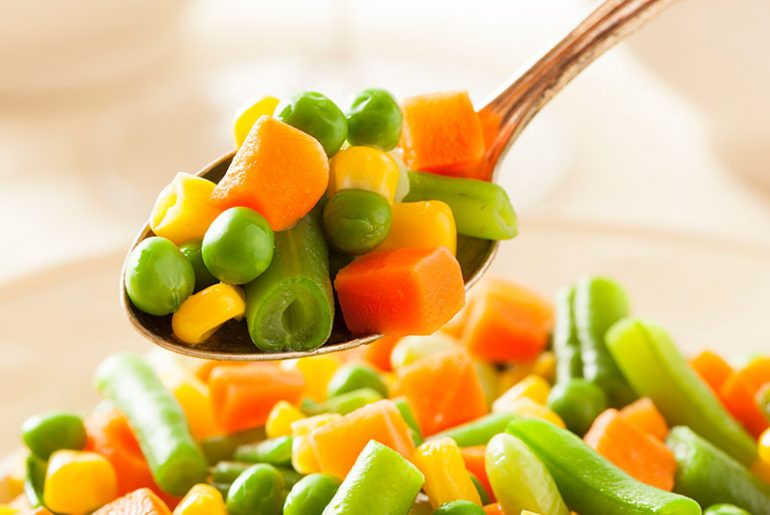Consumers in Canada and elsewhere are being reminded of the value, utility and nutritional benefits of frozen vegetables and fruits as they hunker down at home during the coronavirus (SARS-Cov-2) crisis. As of March 23 the deadly Covid-19 respiratory disease has been attributed to 20 fatalities in Canada and 15,205 deaths around the globe, while confirmed cases of infection are 1,430 in Canada and 339,590 internationally, according to statistics compiled by the WHO and other health authorities.
As Canadians and much of the world’s citizenry practice social distancing, make fewer trips to grocery stores and increasingly engage in self isolation, the reliance on non-perishable food products is greater than ever.
“I think there’s a little bit of anxiety right now with questions like: Am I going to have enough food? What food should I have around the house? Do I need to ration my portions?” said Debora Sloan, a registered dietitian in Ottawa.
She points out that frozen fruits and vegetables not only provide a great deal of nutrition, but they are often superior to perishable produce that has been in the supply chain for days or longer between the time of harvest and consumption.
Jonathan Conti, a Toronto dietician, concurs.
“The benefit of frozen vegetables is that they are harvested at peak freshness, blanched and flash-frozen to preserve their nutritional value,” she told The Canadian Press. “I tend to pick the frozen vegetables that would take a longer time to prepare when fresh. For example, frozen butternut squash, broccoli, cauliflower, and spinach are nutrient-rich options that take minimal time to cook (from frozen).”

‘Think Frozen’ Message from AFFI’s Frozen Food Foundation
Members of the American Frozen Food Institute’s Frozen Food Foundation could not agree more. Their “Think Frozen” message to consumers has been further enunciated following the publication of results of a University of Georgia (UGA) study conducted in partnership with the Frozen Food Foundation. It compared the nutrient content of eight commonly purchased frozen and fresh fruits and vegetables in the United States.
Led by UGA Professor Dr. Ronald Pegg, the study mimicked consumer purchasing and storage habits of blueberries, strawberries, corn, broccoli, cauliflower, green beans, green peas and spinach. To account for variables such as growing conditions, country of origin and time in the supply chain, composite samples were prepared from fresh and frozen fruits and vegetables purchased from six independent grocery stores.
Each fruit and vegetable was analyzed under three conditions: frozen; fresh (on the day of purchase); and fresh-stored (after five days of storage in a kitchen refrigerator). Surveys show that Americans may, on average, store perishable fruits and vegetables for up to five days or more, based on bi-weekly grocery shopping habits.
The study results reveal that the nutritional value of many frozen fruits and vegetables are generally equal to that of their fresh counterparts. The nutritional value – namely the amounts of Vitamin A, Vitamin C and folates – of some frozen fruits and vegetables is greater than that of fresh-stored produce. This determination likely owes itself to the nutrient degradation that occurs in fresh produce during storage.
This research provides valuable new insights into the nutritional value of frozen and fresh fruits and vegetables, adding significantly to the growing body of research highlighting the nutritional benefits of frozen fruits and vegetables.






